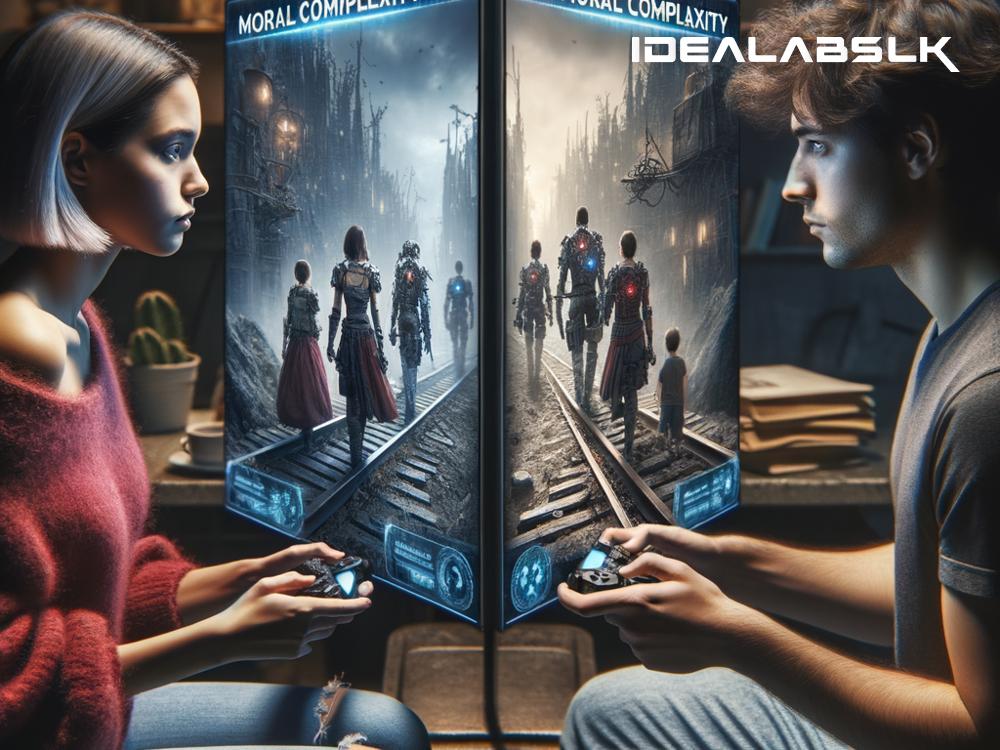The Future of Gaming: AI's Role in Shaping Player Choices and Ethics in Narrative-Driven RPGs
In recent years, role-playing games (RPGs) with strong narratives, like The Last of Us, have captured the imaginations of gamers worldwide. These games are known for their deep stories, complex characters, and the meaningful choices they offer players. As we look toward 2024, one of the most exciting prospects is how artificial intelligence (AI) will transform these experiences, particularly in the realm of player choices and ethics.
Personalized Storytelling
First off, AI is set to revolutionize the way stories adapt to individual players. Imagine playing a game where the storyline isn't set in stone but evolves based on your decisions, not just at crucial moments but with every action you take. This isn't about choosing between option A or B at the climax but a constant, seamless adaptation of the narrative to your personal play style and decisions. AI can analyze your behavior and preferences to craft a story that feels incredibly personal and unique.
More Complex Decision Making
In traditional narrative-driven RPGs, players are often faced with decisions that are clearly labeled as right or wrong, good or evil. But with AI integration, the ethical landscape becomes more nuanced and complex. The AI can introduce scenarios with no clear-cut answers, where choices have long-term consequences that unfold in unpredictable ways. This means players will need to think more critically about their decisions, considering not just immediate outcomes but the far-reaching implications of their actions on the game world and its inhabitants.
Emotional Engagement and AI Characters
One of the most significant impacts of AI will be on character development and relationships within these games. Currently, characters follow pre-written paths and dialogues, with limited variation. However, AI can create characters with their own evolving motivations, emotions, and responses to player actions. This could lead to deeper emotional connections and more meaningful interactions, as players navigate relationships that feel genuinely dynamic and responsive.
Imagine your actions in the game world affecting not just the plot but also how characters perceive and interact with you. Saving a village could earn you a friend for life, while questionable choices might lead to distrust or enmity, influencing the game’s direction in subtle, yet profound ways.
Ethical Complexity and Real-world Learning
As AI blurs the lines between right and wrong within these virtual worlds, players will be encouraged to grapple with ethical dilemmas that mirror real-world complexities. This isn't just about making games more challenging or engaging; it has the potential to foster empathy and understanding, as players consider perspectives and consequences through the lens of their in-game experiences. By presenting ethical quandaries in a nuanced manner, games could encourage players to think more deeply about morality and the impact of their actions, both in and out of the gaming universe.
Challenges Ahead
Of course, this vision of AI-driven narrative RPGs isn't without its challenges. Crafting AI that can seamlessly adapt to and reflect a myriad of player choices without breaking immersion is a monumental task. Developers will need to balance the desire for personalized storytelling with the practical limitations of technology and resources.
Moreover, there's the question of how these advances will affect the narrative integrity of games. Can a story remain compelling and coherent when it's being pulled in countless directions by player choice? This will be a crucial puzzle for game designers to solve as they integrate AI into narrative-driven experiences.
Looking Forward
As 2024 approaches, the potential for AI to enrich narrative-driven RPGs like The Last of Us is both thrilling and a bit daunting. We're on the cusp of an era where games offer not just escape or entertainment but deep, personalized journeys that challenge our perceptions and ethical boundaries. The integration of AI promises to make these virtual worlds more immersive and reactive than ever before, inviting us to explore not just new landscapes, but the depths of our own values and decisions.
In embracing this future, we're not just witnessing the evolution of gaming; we're participating in a groundbreaking form of storytelling that could redefine the role of player choice and ethics in digital narratives. Here's to a future where every playthrough tells a new story, shaped by our actions, ethics, and the limitless possibilities of AI.

